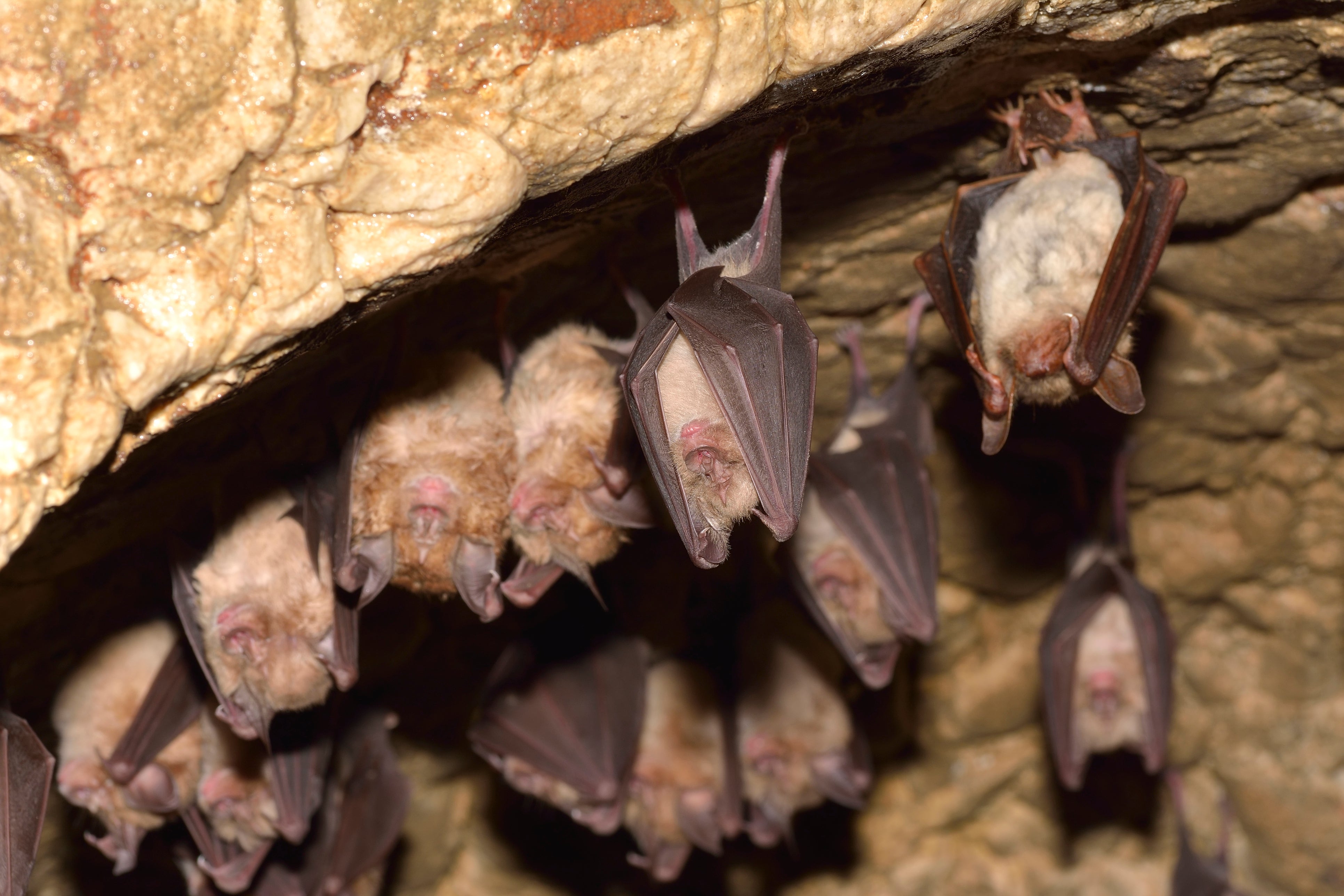The Independent's journalism is supported by our readers. When you purchase through links on our site, we may earn commission.
Novel coronavirus discovered in British bats
Researchers say infection of humans unlikely without mutation

Scientists have discovered a new coronavirus in UK bats that is related to Sars-CoV-2, the infection which causes Covid-19.
An undergraduate researcher from the University of East Anglia (UEA) collected fecal matter from dozens of lesser horseshoe bats, and genome sequencing found the previously unknown coronavirus in one of the 53 samples.
Ivana Murphy said she hoped the discovery would not lead people to persecute bats, adding: “Like all wildlife, if left alone they do not pose any threat.”
The virus, identified by experts at Public Health England, has been named RhGB01. It is unlikely to threaten humans unless it mutates, and there is no evidence it has yet made the jump to us, experts said.
Coronaviruses are a family of similar spherical organisms covered in protein spikes which allow them to bind to human and animal cells. Though they usually only cause minor illnesses, such as colds, some can be deadly, like Sars and Covid-19.
RhGB01 is a sarbecovirus, meaning it is related to Sars. It is the first one discovered either in the UK or in lesser horseshoe bats.
Diana Bell, of UEA, said the species had likely carried RhGB01 for thousands of years, and it had only been detected now because of the new research. She called for further studies into different kinds of bats and other animal species.
Prof Bell said: “Horseshoe bats are found across Europe, Africa, Asia and Australia and the bats we tested lie at the western extreme of their range. Similar viruses have been found in other horseshoe bat species in China, southeast Asia and eastern Europe.
“Our research extends both the geographic and species ranges of these types of viruses and suggests their more widespread presence across more than 90 species of horseshoe bats.
“Our findings highlight the need for robust genotype testing for these types of viruses in bat populations around the world. And it raises an important question about what other animals carry these types of viruses.”
Andrew Cunningham, of the Zoological Society of London, added that humanity may have underestimated the spread of sarbecoviruses and, by extension, the possibilities for their mutation or recombination into a form that can jump the species barrier to humans via intermediate hosts.
He said: “This UK virus is not a threat to humans because the receptor binding domain (RBD) – the part of the virus that attaches to host cells to infect them – is not compatible with being able to infect human cells.
“But the problem is that any bat harbouring a Sars-like coronavirus can act as a melting pot for virus mutation. So if a bat with the RhGB01 infection we found were to become infected with Sars-CoV-2, there is a risk that these viruses would hybridise and a new virus emerge with the RBD of Sars-CoV-2, and so be able to infect people.
“Preventing transmission of Sars-CoV-2 from humans to bats, and hence reducing opportunities for virus mutation, is critical with the current global mass vaccination campaign against this virus.”
Anyone coming into contact with bats, including cavers and wildlife workers, should wear full PPE, the experts warned, saying it was “critical” to prevent infecting the mammals with Sars-CoV-2. Their study is published in Scientific Reports.
The Independent is campaigning for an end to the illegal wildlife trade, which is considered a likely cause of the Covid-19 pandemic.
Subscribe to Independent Premium to bookmark this article
Want to bookmark your favourite articles and stories to read or reference later? Start your Independent Premium subscription today.

Join our commenting forum
Join thought-provoking conversations, follow other Independent readers and see their replies